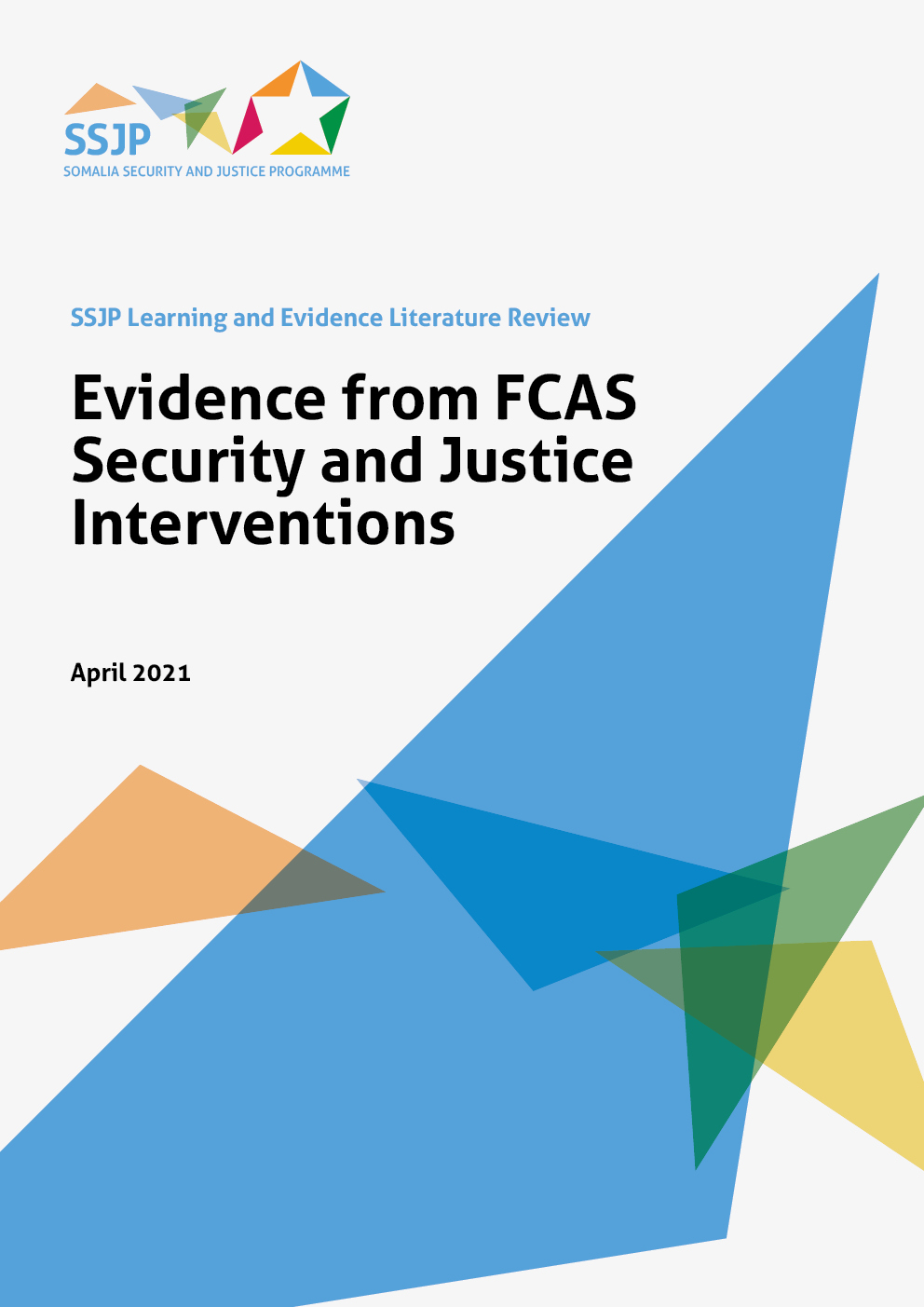Evidence on what works in security and justice programming globally is limited and mixed. Most of the literature focuses primarily on the effectiveness of outputs, with very little focused on longer-term, indirect, or less tangible results.
Findings from the literature review include:
- The 10 studies focusing on capacity building interventions showed primarily individual or short-term approaches and outcomes.
- Limited evidence on community-driven interventions showed effectiveness was mixed, showing some areas of promise in, for example, improving community perceptions of security and justice actors, but limited evidence of actual improved delivery so sustainability.
- Five studies of medium- to high quality evidence on gender-specific interventions were largely capacity building related, although some also looked to change attitudes and norms at both an individual and societal level.
- There is limited evidence on the effectiveness of accountability interventions in supporting security and justice reform and of interventions that engage with non-state actors (despite some encouraging results in the latter)
- Evidence of the effectiveness of legal aid interventions indicates that the provision of legal aid can improve access to justice, especially to socially disadvantaged members of society.

